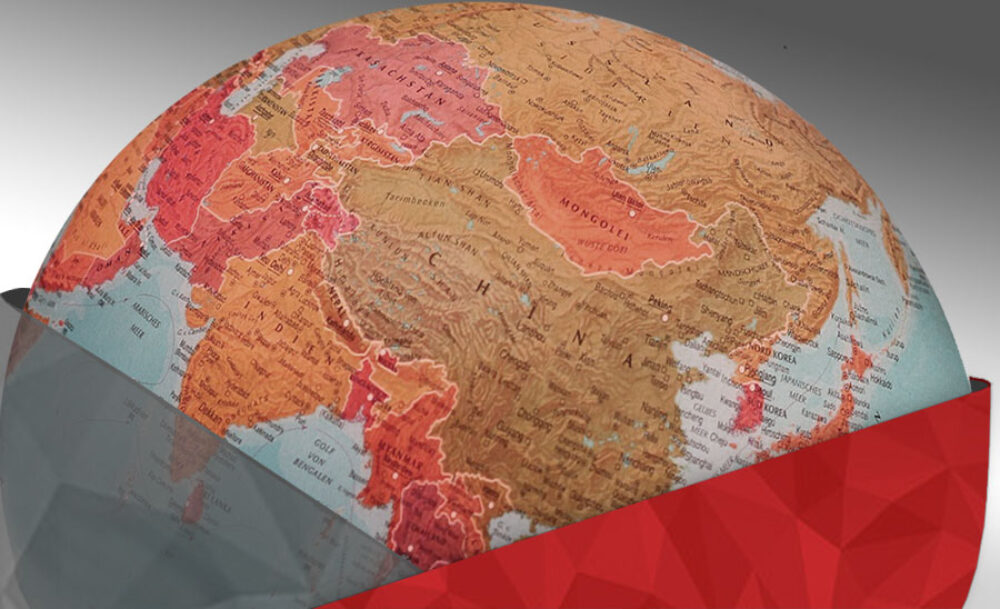The last fortnight witnessed the most coherent manifestation of what’s being touted as the new cold war between the US and China that is likely to define the course of events in the Indo-Pacific region in the short and long terms. The biggest development came in the form of US Vice President Mike Pence’s announcement that Washington would join Canberra in upgrading the Lombrum military base on Manus Island in Papua New Guinea. Speaking on the sidelines of the APEC summit in Port Moresby, Pence emphasised Washington’s aim ‘to protect sovereignty and maritime rights in the Pacific islands’, providing the first tangible enshrinement of the Trump administration’s Indo-Pacific strategy.
Additionally, Australia, New Zealand, Japan and the US signed a deal to fund a massive multi-billion dollar electricity and internet cable rollout initiative in PNG. Both these developments are being seen as part of a US-led pushback against China’s attempts to create debt traps in the Pacific region through its Belt and Road initiative. On another note, Tonga and Vanuatu signed memorandums of understanding with China to join the BRI, joining ranks with Samoa, Fiji, Niue and PNG.
US-China rivalry was at full display at the APEC summit, where Chinese President Xi Jinping and Mike Pence outlined ‘opposing visions’ for the world-order; while Xi spoke of the importance of global cooperation, Pence stated that the US wouldn’t back down on trade negotiations until China ‘changes it ways’. For the first time in APEC’s history, its members couldn’t agree on a joint statement due to Beijing’s objection to the phrase ‘unfair trade practices’ which it took to be directed to itself. Tensions were also rife after Chinese officials barged their way into PNG’s Foreign Minister Rimbink Pato’s office to negotiate the phrasing the final communique.
In another part of the Indo-Pacific, geopolitical manoeuvring is dictating the course of events. While last month’s elections turned the tide in New Delhi’s favour with the ousting of the pro-China Abdulla Yameen from presidency, Maldives’s new president Ibrahim Mohamed Solih has quickly moved towards a rapprochement with India. At the time of writing, senior Maldivian cabinet ministers are in New Delhi, seeking to get India to invest in key infrastructure projects, lend budgetary support and agree to a more favourable currency swap agreement, stressing that the island-nation’s ‘India-first policy’ is back on track. India has offered a US$1 billion in loans to Maldives and has agreed to help make up its budget deficit. It’s also reported that Maldives is likely to pull out of its free trade agreement with China. Indian Prime Minister Narendra Modi made his first visit to Male earlier in the fortnight, signifying the warming up of bilateral ties. In other news, India and Singapore have signed an intelligence-sharing agreement to bolster bilateral defence ties.
Closer home, Shinzo Abe became the first Japanese prime minister to visit Darwin to honour those who died during its bombing in the Second World War. Abe and Australian Prime Minister Scott Morrison are said to have discussed closer defence ties during the Japanese leader’s two-day visit. Calling Darwin the ‘nexus that connects the Indian and Pacific Oceans’, Abe emphasised that the city was ‘a crucial place for the stability and the prosperity to the whole of the Indo-Pacific’.
On another note, Indian President Ram Nath Kovind became New Delhi’s first head of state to visit Australia, signalling an unprecedented momentum in bilateral ties. The presidential visit coincided with the Australian government’s release of an India economic strategy, based on the recommendations from former DFAT secretary Peter Varghese’s landmark report unveiled earlier this year. The strategy includes a memorandum of understanding between Austrade and Invest India, increasing the number of direct flights between the two nations and deepening cooperation across a number of sectors.
Significance for Australia
Policy-makers in Canberra are likely to have breathed a sigh of relief after the last fortnight’s developments. More than anything, this month’s events have shown that the US government’s policy is shaped not by its meteoric president but by an informed national security community which appreciates its alliance commitments. Moreover, this administration has a concrete plan to action its national security strategy outlined in December 2017. US’s announcement of joining Australia in expanding the Manus island base is a welcome development and is more significant for what it symbolises- that Washington is here to stay, despite Donald Trump’s go-it-alone proclivities. Canberra recognises the need for a committed US presence in its backyard if it is to prevent the Chinese juggernaut. China’s bullying tactics as evident at APEC are only going to add to Canberra’s resolve to intensify its pivot towards the Pacific nations.
On the other hand, the deepening geopolitical competition between the US and China is cause for real worry in Canberra. Nonetheless, Vice President Pence’s insistence on a free, fair and open Indo-Pacific region and the US resolve to protect it, will be seen favourably Down Under. While some say that a new cold war ‘isn’t here yet’, they concur that the geopolitical fault lines drawn at the APEC summit signifies ‘another worrying step toward a serious rift in the global economy and geopolitics.’
On another note, developments between the Maldives and India are also very favourable from Canberra’s perspective as they offer hope for democratic pushbacks against China’s debt traps in vulnerable nations. Tonga and Vanuatu’s caving into Chinese pressure on the BRI are extremely worrisome for Australia.
Finally, policymakers in Canberra would be satisfied with the current pace and trajectory of Australia-India relations. The Morrison government’s endorsement of Varghese’s report has been greeted with much enthusiasm both in Australia and India; while Canberra looks for an economic partner as an alternative to China, India sees much potential in Australia as a strategic and economic partner.








